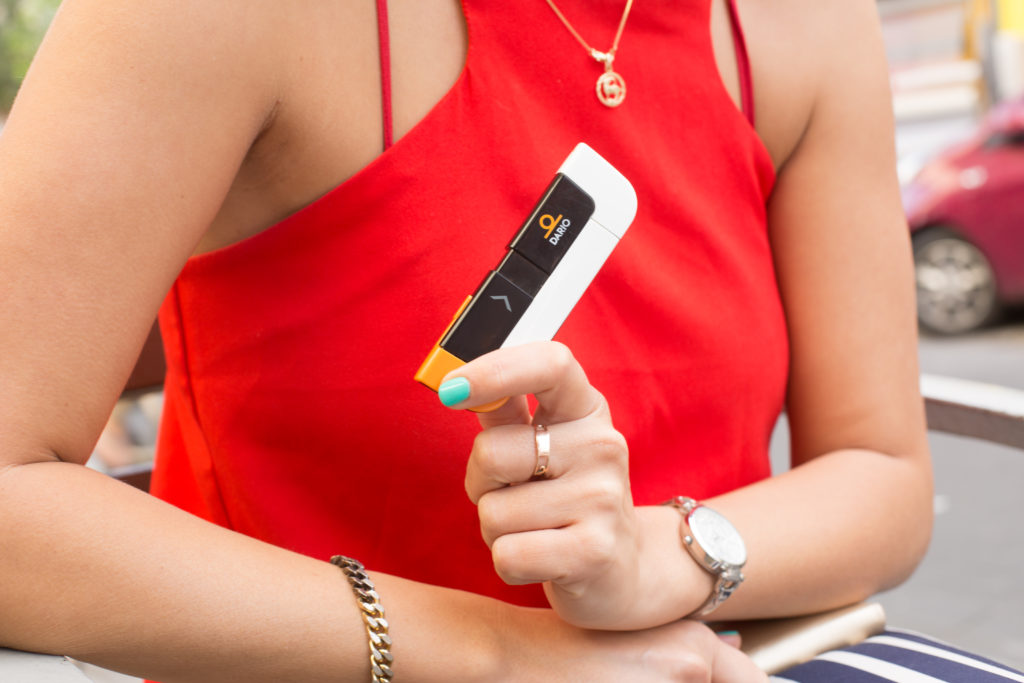6 Crucial Considerations for College Students Heading Back to School
Are you heading back to college and living with diabetes? If so, it’s important to get all your ducks in a row before leaving home.

By Susan B. Sloane, BS, RPh, CDE
The end of summer is a bittersweet time: those long summer days spent outdoors are coming to an end, but it’s also the beginning of the semester for students that are heading off to college or university.
It can be stressful for parents when students leave for school, especially if it’s their first time away from home. If a student has diabetes, as my children do, there is an added layer of stress that you have to face. The biggest fear for a parent or caregiver is that an issue related to a student’s diabetes will arise while they are away.
As many things in life, preparation is critical when heading back to college. If you are a college or university student making the transition back to school this fall, you should think through each and every detail of your move so you are prepared for any situation you may face.
Here are 6 handy tips for students to help them make an easy transition back to school this fall.
Life in the Dorms
The dorms are undoubtedly one of the most fun parts of going to college. You get to live with your friends, and some of the most memorable times come from living in campus housing. If you are choosing a dorm room, it is best to have at least one roommate so you know you’re not alone.

When my son left for college, he had a suite and he shared a common area with several other students. This was a great arrangement because everyone was aware of my son’s diabetes, and knew what to do in case of a problem.
Also, be sure to bring glucagon with you to college. Just to be safe, take the time to explain its function to roommates, friends, and the Resident Assistant and make sure they know how to use it.
Preparation is Key
You need to make sure adequate supplies come with you to college. You have probably stocked up on notebooks, pens, highlighters, and other school supplies. But what about medications and supplies to help manage your diabetes?
First things first: find a pharmacy in the area and get your prescriptions on file. Many states will allow prescriptions to transfer state to state, but I recommend bringing new prescriptions with you so that there are no problems. For example, sometimes needle and syringe prescriptions cannot transfer so it’s best to have a new prescription for a pharmacy near your college or university
As Always, Check Your Blood Sugar
Besides your regular blood glucose measurements, it’s important to check your blood sugars more frequently when you are in a new environment with a different schedule. Lugging around all of your books and bags from class to class is already a big task as is; why should you also carry a bulky pouch with all your diabetes supplies?
And face it, students are inseparable from their smartphones; so why not incorporate your glucometer into the device you carry in your pocket 24/7?
That’s why the Dario Blood Glucose Monitoring System contains everything you need in one single device. For college life, it is the perfect solution since it gives you the flexibility of measuring your blood glucose with an all-in-one blood glucose meter and a native smartphone app.
Have A Backup Plan
A backup plan is always a good idea, especially when living with diabetes. In elementary or secondary school, you may have had a 504 plan in place to give instructions to school faculty if a health issue came up related to your diabetes. In college, these plans do not apply and you will most likely be on your own when it comes to managing the condition.
One proactive step to take is to register with the school’s disability services. They can help you with any problems you may face and likely have resources to help you get settled at school. If you need to miss an exam due to blood sugar issues, for example, proper planning ahead of time should help protect your rights.
College life can create an environment where your immune system is weak due to late nights of studying (and partying). On top of that, when living in the dorms, you are living in close proximity to other students and colds, the flu, and stomach viruses easily pass from one student to another.
If you become ill, don’t stay in your room and hope it passes. High fevers can lead to dehydration and ketoacidosis if not addressed properly. See the health care provider on campus, or go to a doctor that you trust near your school. In order to plan ahead, you can speak to your current health care provider. They can usually refer you to a physician or health care provider near your school.
Drinking Responsibly
It’s no secret that partying in college often involves alcohol, and alcohol and diabetes do not mix well. If you choose to drink, do so in moderation as recommended by your own health care team. Alcohol can lead to hypoglycemia, which can occur several hours after alcohol is ingested. This is because of the unique way that alcohol is metabolized in the body.

Alcohol is metabolized in the liver and when you drink, the liver is monopolized by the alcohol which then blocks the conversion of glycogen to glucose. Therefore, the risk of hypoglycemia is very high for someone with diabetes that drinks an excessive amount of alcohol. On top of this, the symptoms of low blood sugar can be mistaken for alcohol intoxication; therefore someone may not realize you are in trouble.
Just remember to always think before you drink; get to know how alcohol affects your blood sugars and what you need to do to stay safe.
College is a great experience, tons of fun, and a fantastic way to build relationships. These bits of advice are meant to help keep you safe and give you the best experience you could hope for. Have a great time at school this fall; take the proper steps to manage your diabetes, learn as much as you can, and go out and change the world!

About Susan Sloane
Susan B. Sloane, BS, RPh, CDE, has been a registered pharmacist for more than 29 years and a Certified Diabetes Educator for most of her career. Her two sons were diagnosed with diabetes, and since then, she has been dedicated to promoting wellness and optimal outcomes as a patient advocate, information expert, educator, and corporate partner.
Susan has published numerous articles on the topic of diabetes for patients and health care professionals. She has committed her career goals to helping patients with diabetes stay well through education.
<b>Medical Disclaimer</b>
The articles provided on this website are for informational purposes only. In addition, it is written for a generic audience and not a specific case; therefore, this information should not be used for diagnostic or medical treatment. This site does not attempt to replace the patient-physician relationship and fully recommends the reader to seek out the best care from his/her physician and/or diabetes educator.
DAR -0066 RevA 06/2019







